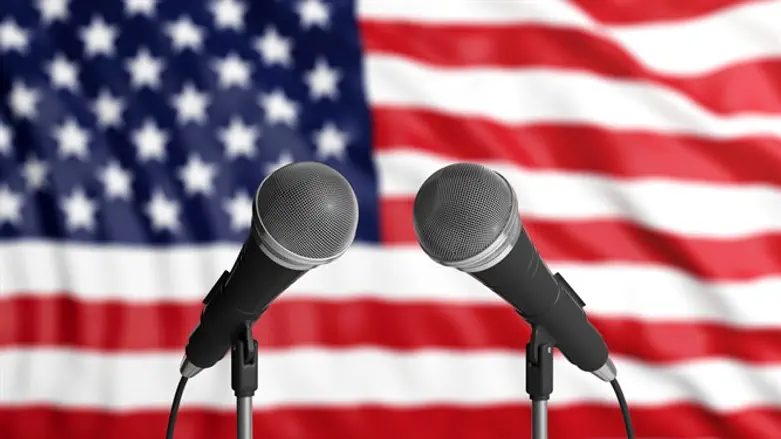
A pro-Israel media watchdog is sounding the alarm after penning a statement to the Los Angeles Times expressing “grave concern” about an anti-Israel letter some of its reporters signed.
Committee for Accuracy in Middle East Reporting and Analysis (CAMERA), in a letter addressed to four top Times executives, asked the newspaper for clarification after they learned that nine of its journalists, two who remained anonymous, signed the June 9 letter, “An open letter on U.S. media coverage in Palestine,” that argued the media ignores “Israel’s systematic oppression of Palestinians.” The letter refers to reports from anti-Israel groups that call Israel an “apartheid state.”
“As of this writing, we are unaware of any action by the Times to deplore the content of the letter or its signatories’ endorsement of it,” wrote CAMERA Executive Director Andrea Levin and Israel office director Tamar Sternthal.
“According to your journalists who signed the Open Letter, coverage of Israeli-Palestinian issues should be filtered through the distorting prism of ‘Israel’s military occupation and its system of apartheid.’ By signing onto such a politically motivated and bigoted statement, they are taking a disgraceful stand against the ethical framework that has guided responsible journalism for the better part of a century: namely, the Society of Professional Journalists’ Code of Ethics (SPJ Code), which clearly sets forth the position that ‘impartiality should still be a reporter’s goal,’ even in today’s ‘superheated political environment.’”
They noted that a recent report by the Reuters Institute for the Study of Journalism found that out of 46 surveyed countries, the United States ranked last in public trust of the media.
“As members of the public who deeply cherish the media’s traditional role,” they wrote, “we are greatly troubled by the ailing relationship between the American public and its media. We are certain you share this concern.”
“Regrettably, the Los Angeles Times journalists who signed the Open Letter do not share that concern and their call to subvert core journalistic norms will worsen the media’s disastrous standing in public opinion and your paper’s reputation in particular,” they added.
Urging the Times to “denounce the sentiments of the Open Letter and underscore there will be no abandonment of essential adherence to fact, impartiality and balance,” they reiterated their position that “there is no ambiguity in the Open Letter’s call for subverting of such journalistic principle. It urges you to substitute propaganda for objectivity and fact.”
They referred the Times to a portion of the Open Letter that states, “These terms — apartheid, persecution, ethnic supremacy — are increasingly gaining institutional recognition after years of Palestinian advocacy, and we, as journalists, need to examine whether our coverage reflects that reality.”
“The allegations referenced are, indeed, the rhetoric of intense and widespread ‘Palestinian advocacy’ efforts to promote a radical, false, anti-Israel narrative in media portrayals,” said CAMERA.
“The endorsement of such mendacious propaganda charges would, it seems, have prompted immediate concern on the part of the Times about the fitness of the signers to report on any aspect of the Middle East — but as well would have called into question their comprehension of the role of journalists generally to report factually and impartially.”
Remarking on the historic lack of trust in the American media coming at a time when anti-Semitic attacks on Jews are at record levels, they cautioned "that your failure to dissociate from the Open Letter, and to halt the subversive spread of its application to Los Angeles Times coverage, will greatly exacerbate both perilous trends.”
As a public watchdog, they called on the Times to “protect the industry’s longstanding commitment to ethical journalism.”
“Reject the partisan agenda of journalists who have declared war on the most basic values of your profession,” they wrote. “In these superheated political times, ethical journalists who practice their profession with integrity are the invaluable safeguard of our shared democracy, now more than ever.”
